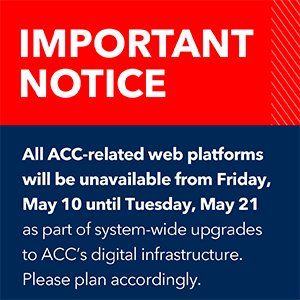EMPACT-MI: Empagliflozin Post MI Does Not Lower Risk of First HF Hospitalization, Death
The SGLT2 inhibitor empagliflozin did not lower the risk of a first hospitalization for heart failure (HF) or death from any cause among patients with an increased risk for HF following acute myocardial infarction (MI), according to the results of the EMPACT-MI study, presented during a Late-Breaking Clinical Trial session at ACC.24 and published simultaneously in the New England Journal of Medicine.
The event-driven, double-blind trial, conducted from December 2020 to March 2023 at 451 sites in 22 countries, randomly assigned 6,522 patients (median age 63 years, 24.9% women, 83.6% White, 1.4% Black, 12.8% Asian) who had been hospitalized for acute MI and were at risk for HF with newly reduced left ventricular ejection fraction (LVEF) or congestion or both to either 10 mg daily of empagliflozin or a placebo in addition to standard care within 14 days of admission. At baseline, 78.4% of patients had an LVEF ≤45%, and 57.0% had signs or symptoms of congestion that resulted in treatment during the index hospitalization.
Results showed that first hospitalization for HF or death from any cause, the composite primary endpoint, occurred in 267 patients (8.2%) in the empagliflozin group and 298 patients (9.1%) in the placebo group during the median follow-up of 17.9 months. The two groups had incidence rates of 5.9 and 6.6 events, respectively, per 100 patient-years (hazard ratio [HR], 0.90; 95% CI, 0.76-1.06; p=0.21).
For the separate components of the primary endpoint, first hospitalization for HF alone occurred in 118 patients (3.6%) in the empagliflozin group and 153 patients (4.7%) in the placebo group (HR, 0.77; 95% CI, 0.60-0.98) and death from any cause occurred in 169 (5.2%) in the empagliflozin group and 178 (5.5%) in the placebo group (HR, 0.96; 95% CI, 0.78-1.19). Results were similar across all sensitivity analyses for the primary endpoint.
In terms of key secondary endpoints, total number of hospitalizations for HF or death from any cause occurred in 317 cases in the empagliflozin group and 385 in the placebo group (rate ratio [RR], 0.87; 95% CI, 0.68-1.10). Total number of nonelective cardiovascular hospitalizations or death from any cause were 666 and 730, respectively (RR, 0.92; 95% CI, 0.78-1.07). Total number of nonelective hospitalizations for any cause or death from any cause were 998 and 1,138 (RR, 0.87; 95% CI, 0.77-1.0), and total number of hospitalizations for MI or death from any cause were 276 and 274 (RR, 1.06; 95% CI, 0.83-1.35).
The authors noted that an exploratory analysis showed that cardiovascular death occurred in 132 patients (4.0%) in the empagliflozin group and 131 (4.0%) in the placebo group (HR, 1.03; 95% CI, 0.81-1.31). The time to death from cardiovascular causes and time to a first HF hospitalization or cardiovascular death were similar in both groups. Adverse events were similar in the two groups and consistent with the known safety profile of empagliflozin.
Among study limitations the authors noted the lack of central adjudication of endpoint events, which were assessed by site investigators using prespecified definitions, and lack of analysis of outpatient HF events, as well as unsuccessful efforts to improve representation within the trial.
"We found that empagliflozin did not reduce mortality after a heart attack but did reduce the risk of [HF] after heart attack," said Javed Butler, MD, FACC, the study's lead author. "To have a 25% to 30% reduction in [HF] hospitalizations is pretty clinically meaningful, but if you put it together with all-cause mortality, it was not a positive study for our primary endpoint."
In an accompanying editorial comment, Jean Rouleau, MD, FACC, wrote that, "The good news is that the prognosis of patients with left ventricular dysfunction, congestion, or both after an acute [MI] have improved markedly. The challenge is that the identification of additional therapies is increasingly difficult, especially because a large percentage … promptly undergo reperfusion." Moreover, the results of this trial do not support the routine use of SGLT2 inhibitors in this population, but in patients with indications for the drug, such as type 2 diabetes or chronic kidney disease, a recent MI may provide an opportunity to start this treatment and decrease the risk of HF.
Clinical Topics: Heart Failure and Cardiomyopathies, Acute Heart Failure
Keywords: ACC Annual Scientific Session, ACC24, Myocardial Infarction, Heart Failure, Novel Agents, Sodium-Glucose Transporter 2 Inhibitors
< Back to Listings
